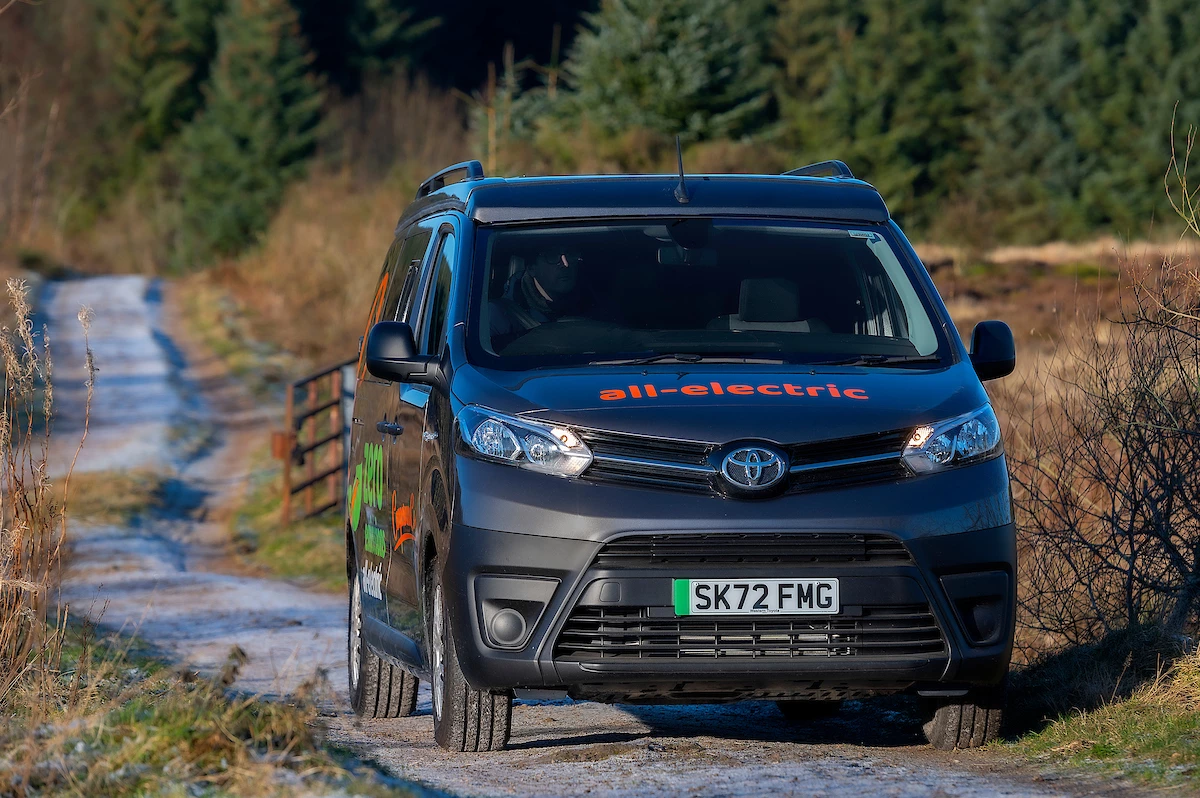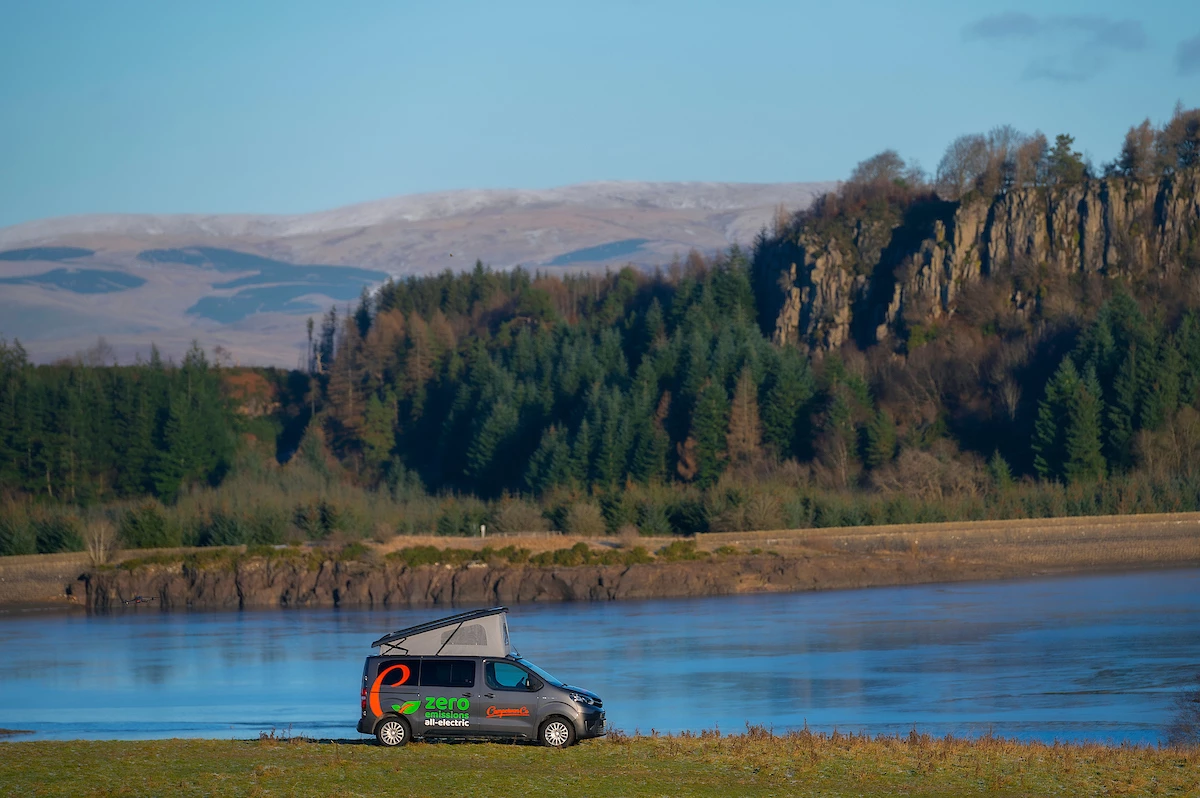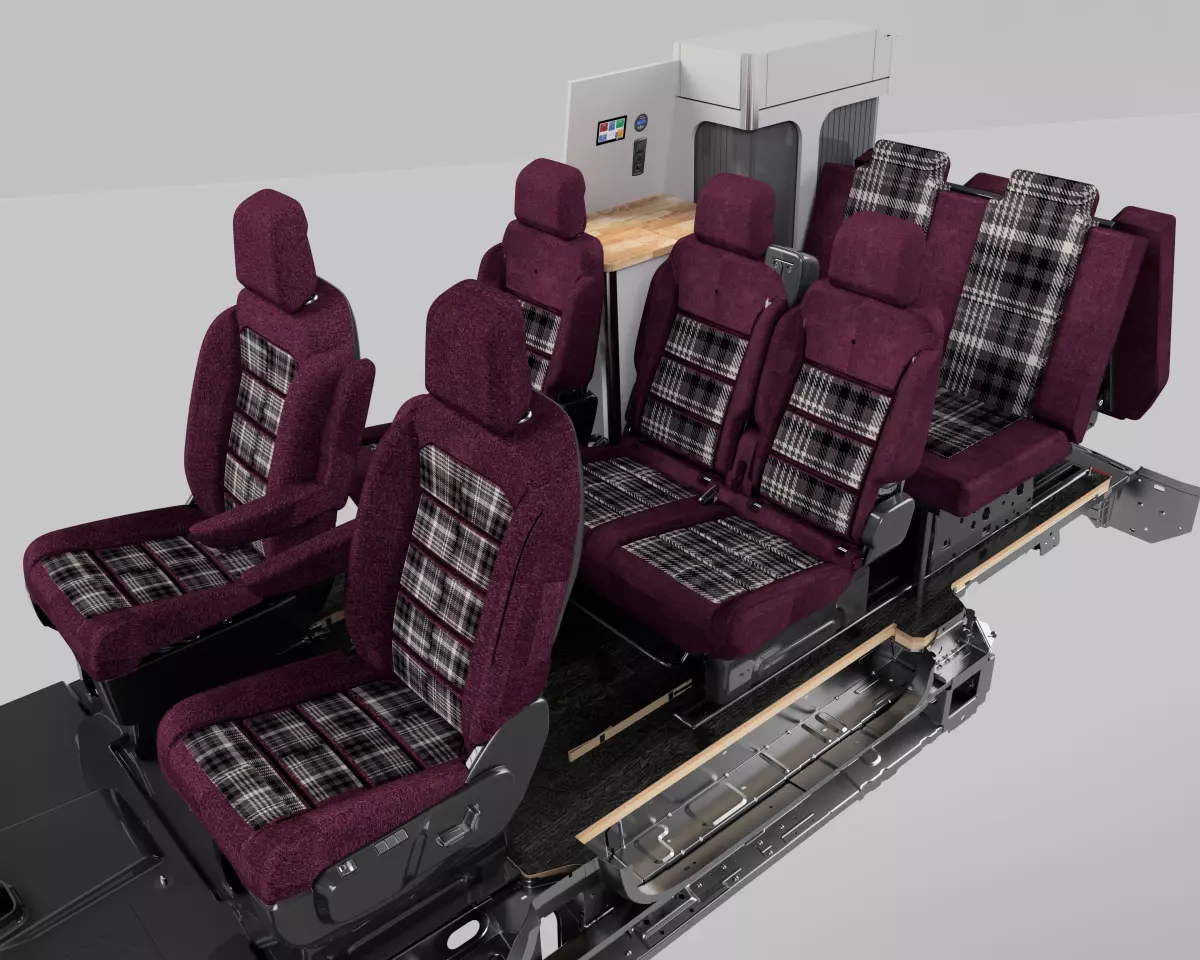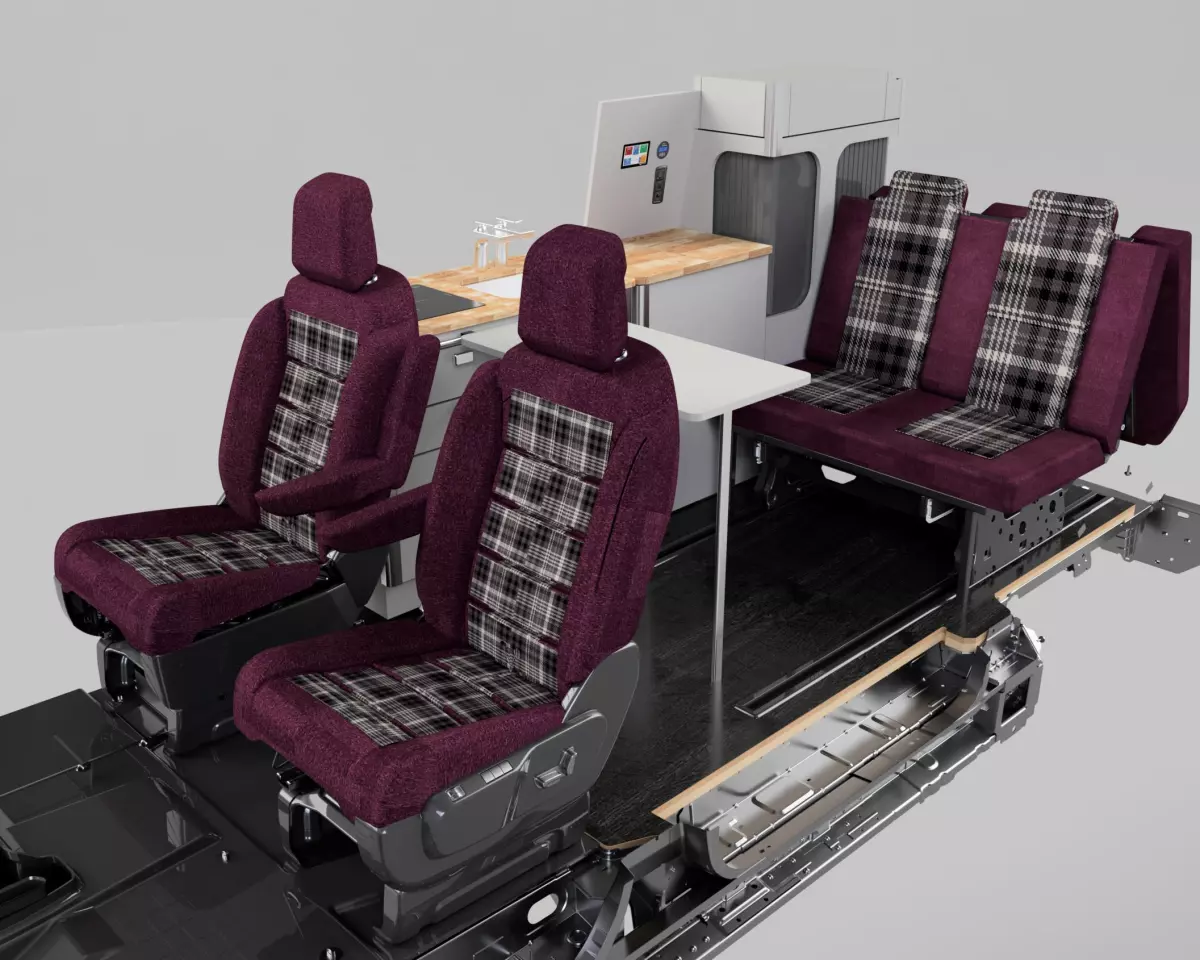Campervan Co has long been one of the world's premier hybrid camper van innovators, with years of experience developing hybrid and "tribrid" camper vans. Now the Scottish shop has brought some of that world-leading innovation to the pure-electric RVing market. Its new Toyota Proace Electric-based Eco Revolution relies on a solar-assisted dual-battery architecture for zero-emissions touring and camping. To ensure its 205-mile (330-km) electric powertrain doesn't go to waste back in the city, Campervan Co has given the Revolution a convertible interior that can seat up to seven people.
It's not surprising that Campervan Co's first all-electric camper van is based on the Proace Electric. The company has been converting imported Japanese-market Toyota Alphard Hybrid vans since it introduced the Eco Pioneer in 2016. The relationship continues seamlessly into the all-electric future as Campervan Co builds each Eco Revolution atop a brand-new electric Proace that offers up to 205 miles (330 km) of WLTP range when equipped with a 75-kWh battery or 143 miles (230 km) with a 50-kWh pack.
The Proace is the Toyota-badged variant of the PSA/Stellantis Group's midsize van also marketed as the Citroën Jumpy, Peugeot Expert, Opel/Vauxhall Vivaro and, more recently, Fiat Scudo. We've seen campers based on the electric versions of a few of those commercial vans or their passenger van equivalents, including the Vauxhall and Citroën, but this is the first Proace Electric conversion we've seen and certainly one of the first all-electric Toyota camper vans in the world.

To ensure the Eco Revolution can match its zero-emissions driving with zero-emissions camping, Campervan Co has installed a fully electric camper kit similar to the one it uses for the Pioneer II hybrid camper van it introduced last year. All the van's onboard camping equipment, including the induction cooktop, LED lighting and space heater, are powered by a 230-Ah 24-V lithium leisure battery, so there's no need for an LPG tank.
The Eco Revolution includes a 240-V hookup for plugging into mains power to charge and power camp. When off-grid, the battery can top off using up to 930 watts of included solar charging. The van can camp self-sufficiently without plugging in for up to two weeks, according to Campervan Co's estimates.

An all-electric van with a pure-electric zero-gas camping layout is already a very eco-friendly choice, and Campervan Co had one more goal in mind for achieving a trifecta of sustainability. Reasoning that a second vehicle sitting idly in a garage for much of the year is inherently inefficient and outside the spirit of lean, eco-friendly living, it decided its e-camper van would need to double as an everyday driver.
Campervan Co achieves its goal with a removable kitchen block that can be swapped out for a third second-row seat. Drop an optional second two-seat bench inside next to the permanently installed camper wardrobe and the Eco Revolution becomes a capable seven-seat minivan ready to tackle everyday family driving.

In camper configuration, the Eco Revolution offers four seats and four sleeping berths, leaving some space for luggage and gear. The two-seat "rock-and-roll" bench creates a dining lounge with the installation of the removable dining table, then folds out into a double bed. The pop-up roof houses a second double bed.
Those who prefer to spend more time outside the van will be happy to note that the dining table also works as an outdoor table. The kitchen area includes Campervan Co's bidirectional "omni-slide" cooker platform, which pulls out the side door for outdoor cooking. The kitchen also includes a sink and a solid wood worktop.

Campervan Co revealed the Eco Revolution on Wednesday ahead of a planned public debut at the Camping, Caravan and Motorhome show in Birmingham, UK, later this month. It has opened up preorders for the £69,995 (approx. US$86,700) camper, which comes standard with the lower-range 50-kWh traction battery and four seats. The 75-kWh battery and seven-seat kit are available as upgrades, each priced at £4,999 (US$6,200). Other options include a water heater, electric kitchen appliances like a microwave, toaster and air fryer, and a range of awnings.
Source: Campervan Co
















